Tag: HVAC technician career
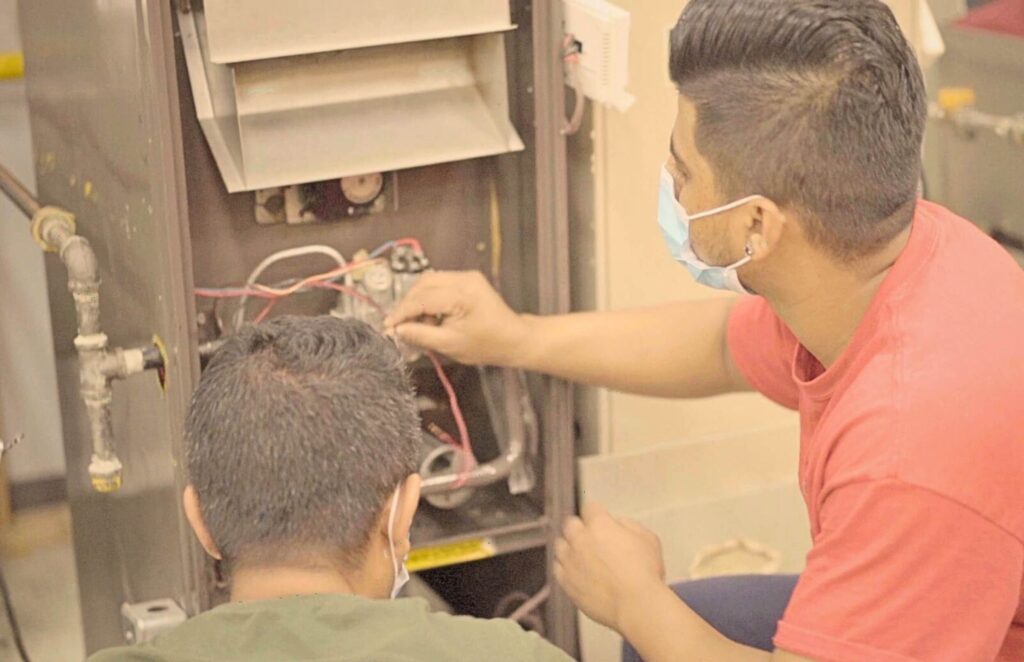
Traditionally, Heating, Ventilation, and Air Conditioning (HVAC) professionals are known for playing an integral role in maintaining the comfort and safety of indoor environments. Yet, the HVAC field is vast, with many career paths beyond traditional settings. These days, being an HVAC technician means not being limited to indoor or residential spaces alone.
HVAC training graduates possess a skill set in high demand, thanks to the essential nature of climate control in residential, commercial, and industrial spaces. Here, we explore three interesting non-traditional work settings where HVAC training graduates can apply their skills and knowledge, each offering unique challenges and opportunities for career growth.
1. Make an Impact on Environmental Conservation in Renewable Energy Sectors
The push towards sustainability and renewable energy has opened new avenues for HVAC professionals. In this sector, HVAC technician training graduates can work on integrating heating and cooling systems with solar panels, wind turbines, and other renewable energy sources.
This environment is about installing or repairing traditional systems and innovating and working on the cutting edge of eco-friendly technologies. Professionals in this field have the opportunity to contribute to the development of green buildings and energy-efficient homes, making a tangible impact on environmental conservation and energy independence.
2. Industrial and Manufacturing Plants Provide a Stimulating Work Environment
HVAC specialists encounter complex and wide-ranging difficulties in industrial settings that are absent in residential or commercial contexts. To maintain the integrity of the items being created and the safety of the workers, manufacturing plants and other industrial facilities heavily rely on sophisticated HVAC systems to regulate environmental conditions. These systems must be designed with large-scale area ventilation and temperature control within strict parameters. In these settings, regulations such as this are central to the specialized manufacturing processes within the facility.
To succeed in this field, budding HVAC technicians must thoroughly understand industrial operations. Armed with insights from their completed HVAC technician courses, they must understand how differing environmental conditions might affect various manufacturing phases and how crucial it is to set up HVAC solutions to satisfy these requirements.
Working in such environments can demonstrate one’s capacity for large-scale system design and management and advance technical competency and problem-solving skills. In addition to technical expertise, the position requires the ability to think creatively and to guarantee that HVAC systems seamlessly integrate with the particular needs of every industrial process.
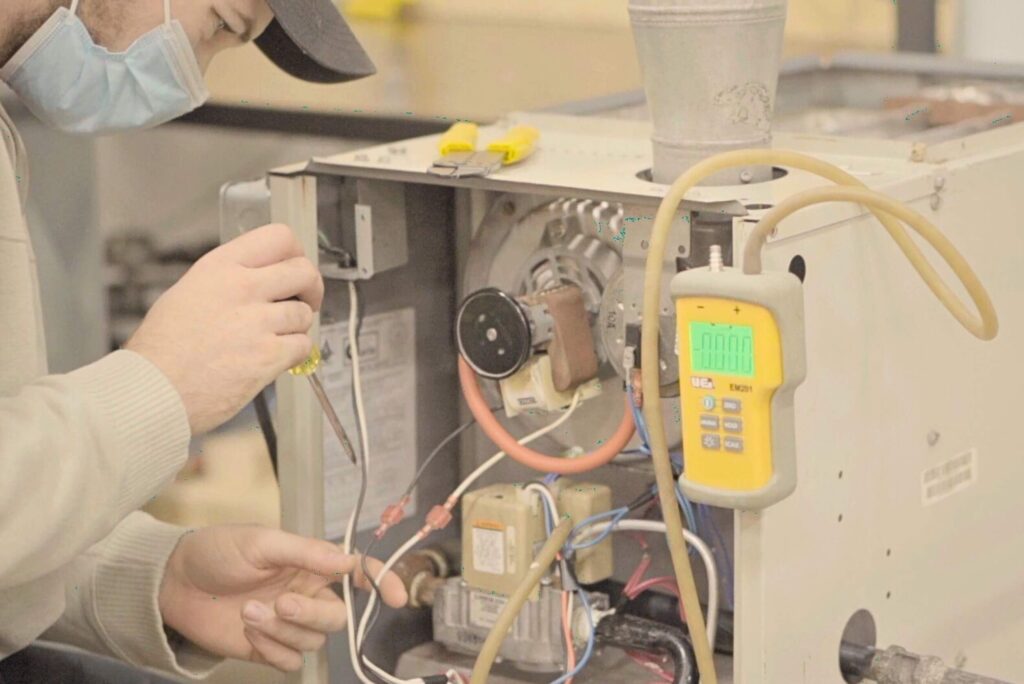
3. Explore Healthcare Facilities Opportunities After HVAC Technician Training
Healthcare facilities like hospitals, clinics, and research laboratories demand exacting climate control to uphold sterile conditions and guarantee patient comfort. This presents a distinct set of challenges for HVAC professionals. Professionals who work in these environments are tasked with installing and maintaining systems that regulate temperature, humidity, and air purity. Given the high stakes of healthcare settings, HVAC technicians and engineers in this field must navigate and comply with rigorous regulations and standards to ensure their systems support the facility’s vital operations.
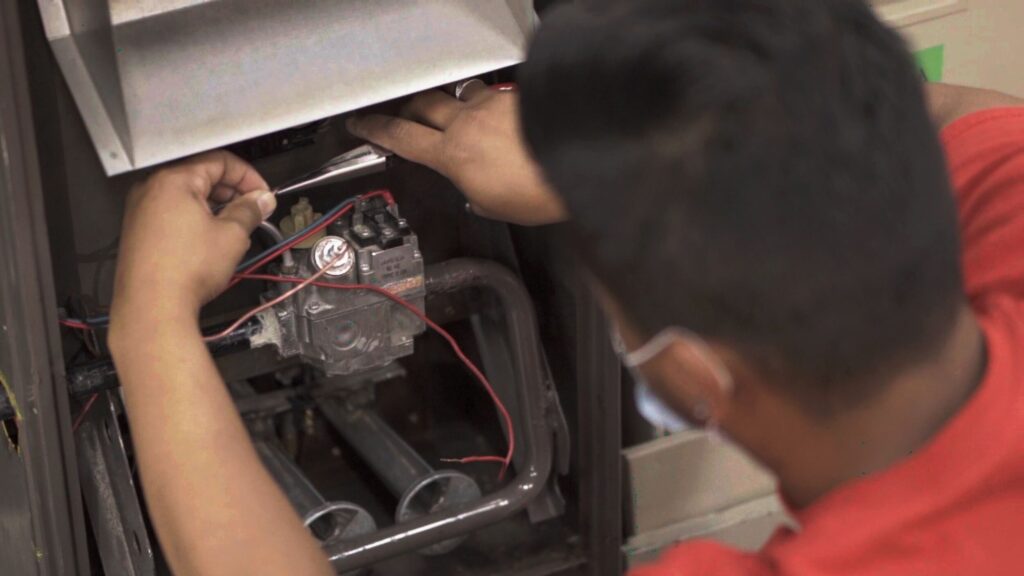
This setting offers HVAC graduates technical hurdles and the fulfilling opportunity to play a key role in patient care and safety. Their work directly impacts the healing environment, contributing to the well-being of patients and the efficiency of healthcare processes. This sector uniquely blends engineering and technology challenges with the human aspect of healthcare, making it a profoundly rewarding field for HVAC professionals dedicated to making a difference.
Are you interested in an HVAC technician career?
Contact NATS for more information.
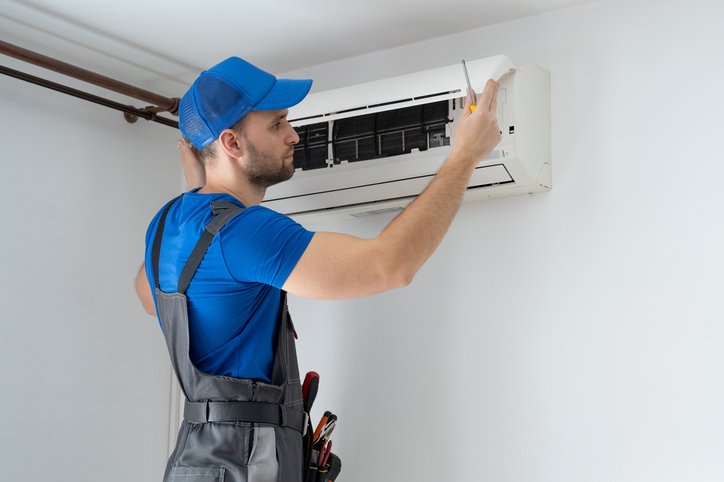
An HVAC Technician is a skilled professional that installs, repairs, and maintains, heating, ventilation, air conditioning, and refrigeration units. If you are considering becoming an HVAC Technician, there are certain safety principles you will need to know and remember. Once you start your career, you will find that you’ll be working with noxious gasses and electrical systems, and as such, you’ll need to remember safety protocols to avoid any harm. Read on for some safety practices you’ll want to remember throughout your training and career.
Wear PPE After HVAC Technician Training
As an HVAC Technician, you are likely to be exposed to noxious fumes, as well as other particles such as dust, debris, and chemicals which may cause harm. It is essential always to wear personal protective equipment (PPE) while you work. For instance, a respirator will help protect you against fumes, and safety goggles can help protect your eyes against any debris or harmful liquids. Other important PPE you may need as an HVAC Technician includes:
- Safety gloves
- A hard hat
- Non-slip shoes
- Earplugs
During your HVAC Technician Diploma program, you will learn the importance of protective gear, including how it should be worn and why it is needed in different scenarios. For example, wearing earplugs when working in a loud environment can help avoid damaging your hearing. Always wearing your safety gear on the job will help prevent you from suffering serious harm.
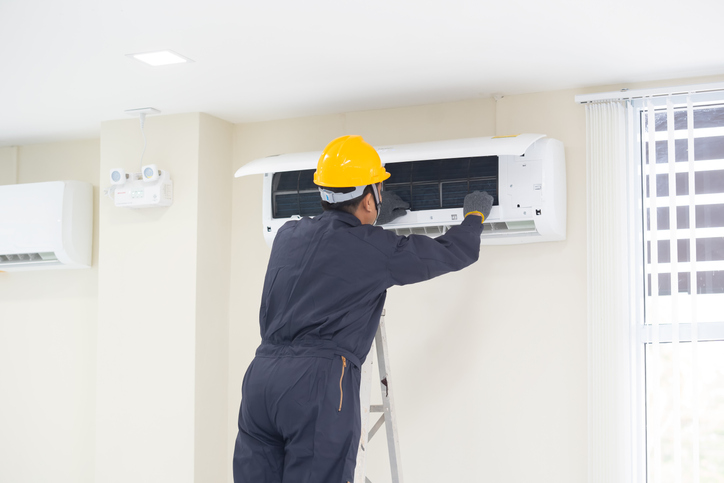
Be Cautious When Handling Chemicals
An important safety practice to always consider while working as an HVAC Technician is to be cautious with chemicals. You will be working with chemicals daily, and some, such as solvents and refrigerants, can be very harmful if not handled correctly. They may cause burns or in some severe cases, poisoning. During HVAC Technician training, you will be taught how to handle these chemicals safely.
Practical examples will be given and overseen by instructors, where you will need to dispose of, replace, and transport chemicals safely. This will be done using the knowledge of rules and regulations you learn during your training. For example, you’ll learn how to remove and store refrigerant chemicals safely.
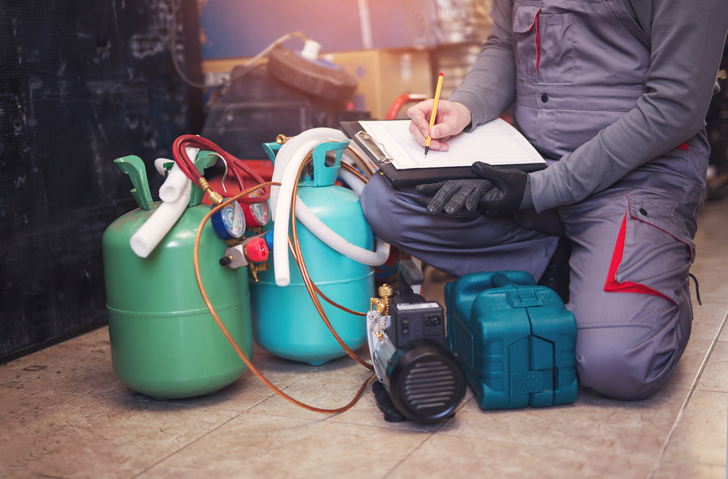
Turn Off the Electricity While you Work
When working with units that have a water system or have general electrical issues, it is safer to turn off the main circuit breaker before starting work. Water is a conductor of electricity and can cause electrocution. Water leaking onto the unit you are working on may also be damaging to the unit, as it may cause a short circuit. This can be not only damaging for the unit but is a safety and fire hazard, as well. Additionally, it will be essential to analyze a unit before you begin working on it to see if there are any fluid leaks. This will help you better understand if you need to turn off the main circuit breaker.
The HVAC training you receive at NATS will help you identify leaks, teach you how to fix them, and help you understand the safety practices to follow throughout your career.
Are you ready to begin training for your HVAC Technician career?
Contact NATS to learn how you can get started!





